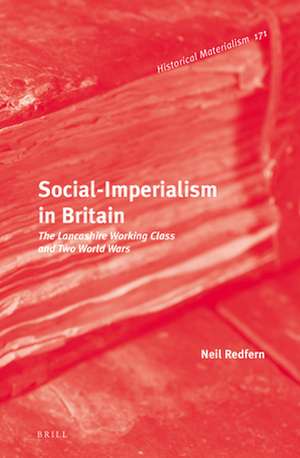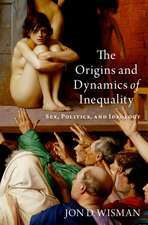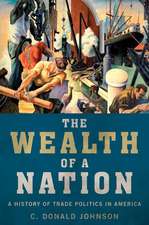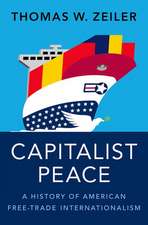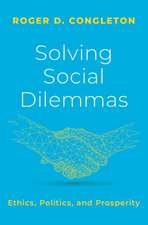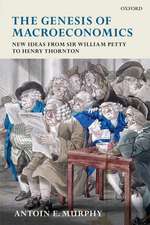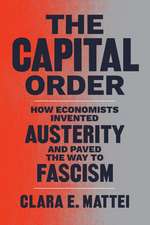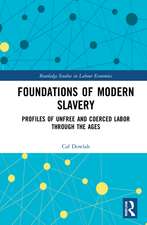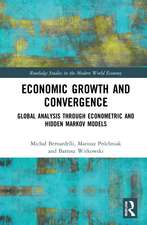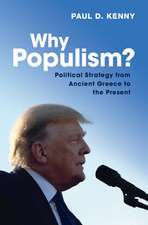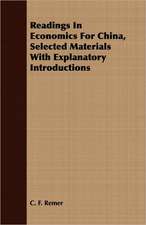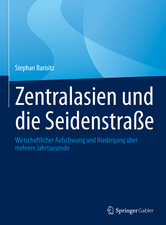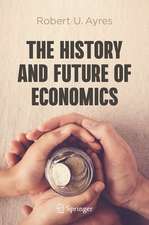Social-Imperialism in Britain: The Lancashire Working Class and Two World Wars: Historical Materialism Book Series, cartea 171
Autor Neil Redfernen Limba Engleză Hardback – 26 sep 2018
Din seria Historical Materialism Book Series
-
 Preț: 215.03 lei
Preț: 215.03 lei - 18%
 Preț: 966.97 lei
Preț: 966.97 lei - 18%
 Preț: 990.17 lei
Preț: 990.17 lei - 18%
 Preț: 1092.16 lei
Preț: 1092.16 lei - 18%
 Preț: 1229.68 lei
Preț: 1229.68 lei - 18%
 Preț: 1241.69 lei
Preț: 1241.69 lei - 18%
 Preț: 1190.02 lei
Preț: 1190.02 lei - 18%
 Preț: 893.05 lei
Preț: 893.05 lei - 18%
 Preț: 1401.90 lei
Preț: 1401.90 lei - 18%
 Preț: 928.61 lei
Preț: 928.61 lei - 18%
 Preț: 690.93 lei
Preț: 690.93 lei -
 Preț: 268.72 lei
Preț: 268.72 lei - 18%
 Preț: 674.66 lei
Preț: 674.66 lei - 18%
 Preț: 606.89 lei
Preț: 606.89 lei - 18%
 Preț: 783.83 lei
Preț: 783.83 lei - 18%
 Preț: 584.79 lei
Preț: 584.79 lei - 18%
 Preț: 711.88 lei
Preț: 711.88 lei - 18%
 Preț: 653.06 lei
Preț: 653.06 lei - 18%
 Preț: 531.92 lei
Preț: 531.92 lei - 18%
 Preț: 618.25 lei
Preț: 618.25 lei - 18%
 Preț: 647.76 lei
Preț: 647.76 lei - 18%
 Preț: 710.71 lei
Preț: 710.71 lei - 18%
 Preț: 922.25 lei
Preț: 922.25 lei - 18%
 Preț: 810.75 lei
Preț: 810.75 lei - 18%
 Preț: 996.79 lei
Preț: 996.79 lei - 18%
 Preț: 815.23 lei
Preț: 815.23 lei - 18%
 Preț: 1506.61 lei
Preț: 1506.61 lei - 18%
 Preț: 852.64 lei
Preț: 852.64 lei - 18%
 Preț: 645.67 lei
Preț: 645.67 lei - 18%
 Preț: 781.47 lei
Preț: 781.47 lei - 18%
 Preț: 615.24 lei
Preț: 615.24 lei - 18%
 Preț: 1155.48 lei
Preț: 1155.48 lei - 18%
 Preț: 1063.00 lei
Preț: 1063.00 lei - 18%
 Preț: 867.10 lei
Preț: 867.10 lei - 48%
 Preț: 1092.66 lei
Preț: 1092.66 lei - 36%
 Preț: 765.88 lei
Preț: 765.88 lei - 18%
 Preț: 648.19 lei
Preț: 648.19 lei - 18%
 Preț: 759.38 lei
Preț: 759.38 lei - 18%
 Preț: 716.43 lei
Preț: 716.43 lei - 18%
 Preț: 671.15 lei
Preț: 671.15 lei - 18%
 Preț: 671.56 lei
Preț: 671.56 lei - 18%
 Preț: 760.94 lei
Preț: 760.94 lei - 18%
 Preț: 1012.79 lei
Preț: 1012.79 lei - 18%
 Preț: 817.26 lei
Preț: 817.26 lei - 18%
 Preț: 656.87 lei
Preț: 656.87 lei - 18%
 Preț: 1298.20 lei
Preț: 1298.20 lei - 18%
 Preț: 791.88 lei
Preț: 791.88 lei - 18%
 Preț: 971.69 lei
Preț: 971.69 lei - 18%
 Preț: 635.15 lei
Preț: 635.15 lei
Preț: 689.39 lei
Preț vechi: 840.71 lei
-18% Nou
Puncte Express: 1034
Preț estimativ în valută:
131.93€ • 137.23$ • 108.92£
131.93€ • 137.23$ • 108.92£
Carte indisponibilă temporar
Doresc să fiu notificat când acest titlu va fi disponibil:
Se trimite...
Preluare comenzi: 021 569.72.76
Specificații
ISBN-13: 9789004320109
ISBN-10: 9004320105
Dimensiuni: 155 x 235 mm
Greutate: 0.45 kg
Editura: Brill
Colecția Brill
Seria Historical Materialism Book Series
ISBN-10: 9004320105
Dimensiuni: 155 x 235 mm
Greutate: 0.45 kg
Editura: Brill
Colecția Brill
Seria Historical Materialism Book Series
Cuprins
Acknowledgements
Introduction
1 Rallying Round the Flag
1The Labour Movement and the War
2Mustering the Masses for War
3The End of the Road for Liberalism?
4The Discontents and Demands of the Labour Movement
5‘Dilution’ and the Mobilisation of Women
2 Labour’s Unrest and Capital’s Promises
1Conscriptions and ‘Conchies’
2Social Patriots and (a few) Internationalists
3Labour Unrest and (eventual) Government Response
4Strikes, Shop Stewards and Revolutionaries
5A Better World Coming?
6More Strikes, More Shop Stewards and Some Revolutionaries
3 1919: A ‘Red Year’?
1A Revolutionary Situation in Britain?
2Expanding the Franchise: Suffragettes, Suffragists and the Labour Party
3Labourists, Feminists and Socialists: Labour’s New Platform
4The Labour Movement in the General Election of 1918
51919: A Tumultuous but not ‘Red Year’ in Lancashire
6Housing Reform and the Municipal Elections of 1919
7The Post-War Crisis, the Working Class, and the Empire
4 Rallying Round the Flag Again
1An Imperialist War in Anti-Fascist Clothing
2The Crisis of 1940
3Building a Labour-Capital Pact
4Never Again! The Early Growth of Popular Reform Sentiment
5Dissent and Discontent in the Working Class and in the Labour Movement
6Joint Production Committees: A ‘Nazi System of Labour Organisation’?
7Out of the Kitchen Again: Mobilising Women to ‘do their bit’
8Not Counting the Colonies: The Labour Movement and the Empire
9A Social-Imperialist Surge for Reform
5 Building the Social-Imperialist Settlement
1Beveridge Promises a New World
2The ‘Old Gang’ Takes an Ideological and Political Beating
3A Resurgence of Industrial Unrest
4A Touch on the Reform Accelerator
5More Promises, More Unrest, More Discontent
6Social Imperialism Triumphant: The Last Phase of the War
7Labour to Power: The End of the War and the General Election
Conclusion and Postscript
Bibliography
Index
Introduction
1 Rallying Round the Flag
1The Labour Movement and the War
2Mustering the Masses for War
3The End of the Road for Liberalism?
4The Discontents and Demands of the Labour Movement
5‘Dilution’ and the Mobilisation of Women
2 Labour’s Unrest and Capital’s Promises
1Conscriptions and ‘Conchies’
2Social Patriots and (a few) Internationalists
3Labour Unrest and (eventual) Government Response
4Strikes, Shop Stewards and Revolutionaries
5A Better World Coming?
6More Strikes, More Shop Stewards and Some Revolutionaries
3 1919: A ‘Red Year’?
1A Revolutionary Situation in Britain?
2Expanding the Franchise: Suffragettes, Suffragists and the Labour Party
3Labourists, Feminists and Socialists: Labour’s New Platform
4The Labour Movement in the General Election of 1918
51919: A Tumultuous but not ‘Red Year’ in Lancashire
6Housing Reform and the Municipal Elections of 1919
7The Post-War Crisis, the Working Class, and the Empire
4 Rallying Round the Flag Again
1An Imperialist War in Anti-Fascist Clothing
2The Crisis of 1940
3Building a Labour-Capital Pact
4Never Again! The Early Growth of Popular Reform Sentiment
5Dissent and Discontent in the Working Class and in the Labour Movement
6Joint Production Committees: A ‘Nazi System of Labour Organisation’?
7Out of the Kitchen Again: Mobilising Women to ‘do their bit’
8Not Counting the Colonies: The Labour Movement and the Empire
9A Social-Imperialist Surge for Reform
5 Building the Social-Imperialist Settlement
1Beveridge Promises a New World
2The ‘Old Gang’ Takes an Ideological and Political Beating
3A Resurgence of Industrial Unrest
4A Touch on the Reform Accelerator
5More Promises, More Unrest, More Discontent
6Social Imperialism Triumphant: The Last Phase of the War
7Labour to Power: The End of the War and the General Election
Conclusion and Postscript
Bibliography
Index
Notă biografică
Neil Redfern, Ph.D. (Manchester, 1998), is now retired. He has taught history at Manchester University and Manchester Metropolitan University. He has published a monograph Class or Nation Communists, Imperialism and Two World Wars (I.B. Tauris, 2005) and many articles on the communist movement.
Recenzii
"This book brings together a Marxist approach to the two World Wars and the British working class and a study of the regional history in the same period. This makes it both an unusual and interesting study of our region. […] The book is one that all Lancashire libraries should have a copy of, it has added to our knowledge of labour in Lancashire during the two world wars whether you share or disagree with the author's approach to analysing the wars from a Marxist perspective." - Alan Fowler, in: North West Labour History 44 (2019-2020)
